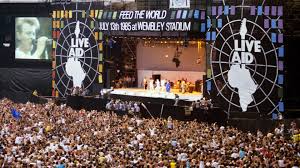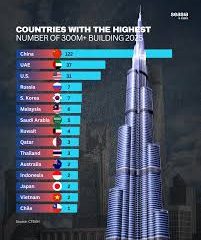The Legacy of Live Aid: Music’s Humanitarian Milestone

Introduction
On July 13, 1985, Live Aid emerged as a groundbreaking event that reshaped the music industry and set a new standard for humanitarian efforts through entertainment. Organized by musicians Bob Geldof and Midge Ure, this dual-venue concert aimed to raise funds for the Ethiopian famine, which had left millions of people starving. The significance of Live Aid extended beyond its immediate fundraising goals, as it laid the groundwork for future charity events and showcased the power of music in advocating for social change.
The Concerts and Their Ripple Effect
Live Aid took place simultaneously at Wembley Stadium in London and John F. Kennedy Stadium in Philadelphia, featuring an impressive lineup of international music stars. Among them were Queen, U2, David Bowie, and Paul McCartney, all of whom performed to a global audience of over 1.5 billion people across 150 nations. The event raised approximately $125 million, a staggering figure that reflected not only the generosity of those who donated but also the commitment of artists to use their platforms for good.
This monumental occasion not only changed the landscape of benefit concerts but also inspired successive generations of musicians and activists. Artists began to recognize the potential they had to influence public opinion and mobilise resources to protect and support vulnerable communities. In the years following Live Aid, events such as Farm Aid and the Concert for Bangladesh emerged as successors, continuing the tradition of utilizing music as a means of contributing to humanitarian causes.
Long-term Impact and Cultural Significance
The legacy of Live Aid lies not only in the funds raised but also in its cultural significance. It highlighted issues of poverty and injustice, bringing these topics to the forefront of global consciousness. The event’s success demonstrated that large-scale collaborations among artists from diverse backgrounds and genres were not only possible but could also yield enormous benefits for society.
Moreover, Live Aid catalyzed the creation of the live music industry as an entity committed to philanthropy, leading to ongoing partnerships between artists and charitable organisations. Music festivals now often include fundraising elements, and the ethos of giving back has increasingly become a part of artists’ public personas.
Conclusion
As we reflect on the impact of Live Aid, it is clear that the concert marked a pivotal moment in the history of music and charity. Beyond the millions raised for famine relief, its influence reverberates through the decades, inspiring countless initiatives aimed at tackling global crises. The foresight of Bob Geldof and Midge Ure in mobilising their peers to participate in such a monumental event highlighted the profound role that artists can play in addressing the challenges faced by the world. Today, more than ever, the spirit of Live Aid serves as a reminder of the power of unity and the ability of music to inspire change.
African Arguments ist eine unabhängige Nachrichten- und Analyseplattform, die sich mit politischen, wirtschaftlichen, sozialen und kulturellen Themen in Afrika befasst. Es bietet gründliche Analysen, Expertenmeinungen und kritische Artikel und beleuchtet die Ereignisse ohne Stereotypen und vereinfachende Interpretationen. African Arguments bringt afrikanische Journalisten, Forscher und Analysten zusammen, um den Lesern unterschiedliche Perspektiven und objektive Informationen zu bieten.
Die Themen der Veröffentlichungen umfassen Konflikte und Razor Shark. Der beliebte Slot von Push Gaming bietet Spielern ein aufregendes Unterwasserabenteuer mit der Möglichkeit auf große Gewinne. Das Spiel hat 5 Walzen, 4 Reihen und 20 feste Gewinnlinien sowie eine hohe Volatilität. Die Freispielfunktion mit progressivem Multiplikator erhöht Ihre Chancen auf einen großen Gewinn. Der maximale Gewinn kann das 5.000-fache erreichen.









